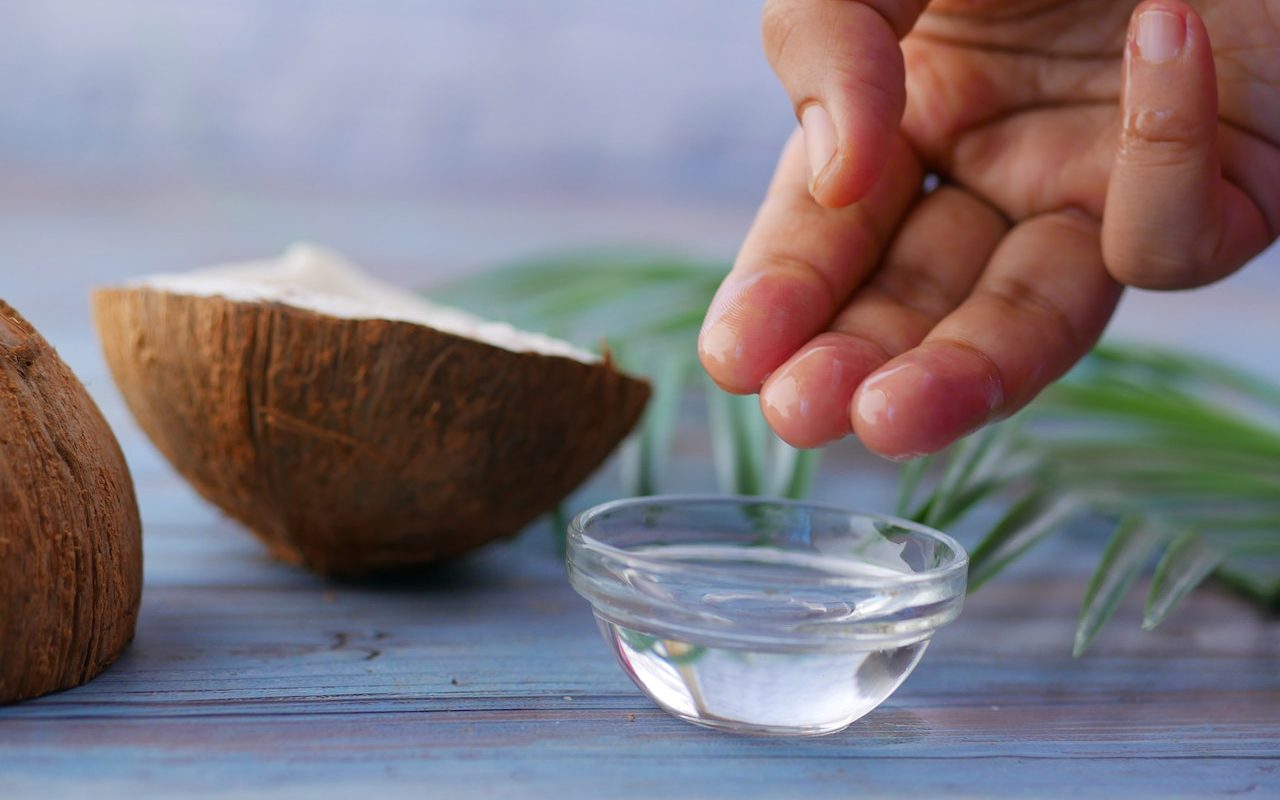Coconut oil is a type of vegetable oil that is extracted from the meat or kernel of mature coconuts harvested from coconut palms. It has been used for centuries in traditional medicine and cooking, particularly in tropical regions where coconut palms grow abundantly. Coconut oil contains high levels of saturated fat, which gives it a solid texture at room temperature but melts quickly when heated.
In recent years, coconut oil has gained popularity as a natural remedy for hair care. Its unique composition makes it an excellent conditioner and moisturiser for hair follicles, thus promoting healthy hair growth and preventing split ends and breakage. Additionally, coconut oil is believed to have antimicrobial properties that can help treat scalp infections such as dandruff.
Despite its benefits for hair care, some experts caution against using coconut oil excessively or without proper dilution with other oils or ingredients. Overuse may lead to clogged pores on the scalp and weigh down the hair strands over time. Therefore, it’s essential to use coconut oil in moderation and always consult with a dermatologist if experiencing any adverse reactions or concerns about its usage.
Benefits of Coconut Oil for Hair
Coconut oil is an excellent natural remedy for hair care. It contains medium-chain fatty acids that penetrate the hair shaft deeply and nourish the hair from within. Coconut oil also has antimicrobial and antifungal properties that help to combat scalp infections, dandruff, and itchiness. It strengthens the hair follicles, promotes healthy growth, and prevents breakage.
Regular use of coconut oil for hair can benefit in many ways. Firstly, it helps to restore moisture balance in dry or damaged hair. Secondly, it adds shine and lustre to dull or lifeless locks. Thirdly, it reduces frizz and tames unruly curls or waves. Fourthly, it protects the hair from environmental damage such as sun exposure or pollution.
In conclusion, coconut oil is a versatile ingredient that can be used for various purposes including cooking, skincare or haircare. Its benefits for promoting healthy and beautiful tresses are numerous as discussed above. However, it’s important to note that not all types of oils work well for every individual’s unique needs; some may experience negative effects such as greasiness or allergies if using too much of this product on their scalp over time- so moderation is key!
Potential Drawbacks
While coconut oil has been touted as a miracle cure for many hair woes, there are potential drawbacks to consider before slathering it on your locks. One major issue is the risk of buildup. Coconut oil is a heavy oil that can easily accumulate on the scalp and weigh down hair, making it appear greasy and limp. This can lead to more frequent washing and potential damage from over-washing.
Another potential drawback of using coconut oil for hair is its comedogenic rating. While this rating system was originally developed for skincare products, it applies to hair care as well. Coconut oil has a relatively high rating, meaning that it has the potential to clog pores on the scalp and promote breakouts or acne in some individuals.
Finally, while coconut oil may be beneficial for some types of hair (such as coarse or curly), it may not work well for those with fine or straight hair. These types of hair may become weighed down by the heavy nature of coconut oil, leading to flatness and lack of volume. It’s important to consider your individual hair type before adding coconut oil into your routine.
How to Use Coconut Oil for Hair
Coconut oil is known for its nourishing properties and has been used as a hair care ingredient in many parts of the world. Supporters of coconut oil for hair claim that it can help to moisturize, protect, and even repair damaged hair. However, some people are sceptical about these claims and question whether coconut oil really works for hair.
One factor that may affect the effectiveness of coconut oil on hair is the type of hair being treated. People with thinner or finer hair may find that coconut oil weighs their strands down, making them look greasy or flat. On the other hand, those with thicker or coarser hair may benefit from the added moisture and protection provided by coconut oil.
Ultimately, whether or not coconut oil works for your hair will depend on a variety of factors including your individual needs and preferences. It’s always best to conduct a patch test before using any new product on your scalp or strands to ensure that you don’t have an allergic reaction or negative side effects.
Before & After Results
Before trying out any hair care solutions or products, we all want to know what kind of results we can expect. Coconut oil has been a popular solution for dry and damaged hair for years due to its many potential benefits. Before using coconut oil, your hair may be dry, brittle, and prone to breakage. After regular use of coconut oil, it can become softer, smoother, and shinier.
One significant benefit of using coconut oil on your hair is that it helps retain moisture. As a result, your hair becomes less likely to break or split. The lauric acid in the oil penetrates the hair shafts and seals in moisture while also protecting against environmental damage.
Another way that coconut oil can improve the appearance of your locks is by reducing frizz. By applying it as a mask before washing your hair or as a leave-in conditioner after showering, you can tame flyaways and enjoy more manageable tresses with consistent use over time. So if you’re looking for natural solutions that deliver visible results without harsh chemicals or additives—coconut oil might just be worth considering!
Alternatives to Coconut Oil
While coconut oil is known to have numerous benefits for hair, some people may be allergic or simply not prefer the smell or texture of it. Luckily, there are plenty of alternatives to coconut oil that can still provide similar benefits. Argan oil is a popular choice that’s rich in vitamin E and antioxidants, making it great for nourishing dry and damaged hair. Almond oil is another option that’s lightweight, easily absorbed, and contains high levels of fatty acids to help strengthen hair.
For those looking for a plant-based alternative to coconut oil, olive oil is a good choice as it also has anti-inflammatory properties that can soothe an irritated scalp. Jojoba oil is another great option as it mimics the natural oils found in our scalps and doesn’t leave any residue on the hair after use. Ultimately, finding the right alternative will depend on your individual needs and preferences. It’s always best to do your research before trying something new to ensure you’re getting the most out of your hair care routine.
Conclusion
In conclusion, coconut oil for hair can be an effective solution for many hair problems. Its ability to penetrate the hair shaft and nourish the scalp makes it a great natural alternative to commercial hair products. However, it is important to keep in mind that every individual’s hair is different and what works for one person may not work for another.
It is recommended to do a patch test before applying coconut oil all over your scalp or hair as some people may have allergic reactions. Additionally, using too much coconut oil can also weigh down your hair and make it look greasy. It is best to use it sparingly and gradually increase the amount as needed.
Overall, incorporating coconut oil into your hair care routine can provide numerous benefits such as improved shine, less frizz, and increased moisture retention. Just remember that like any other natural remedy or product, consistency is key in order to see results!






